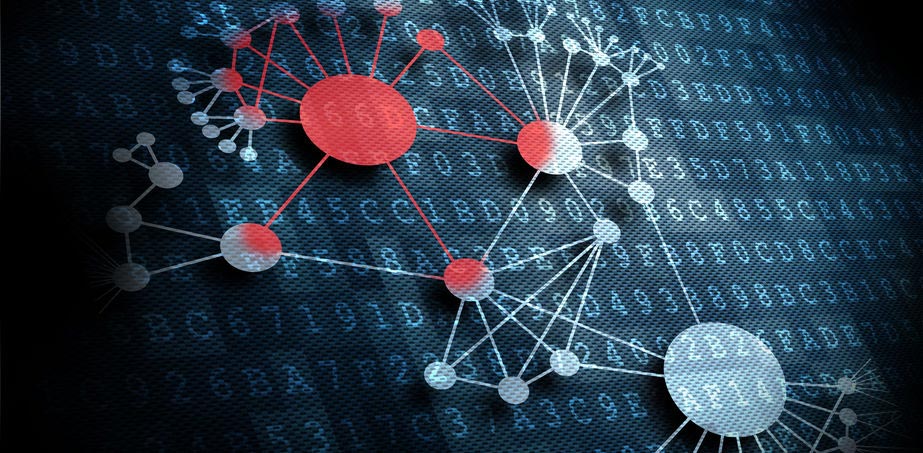InfoGuard AG (Headquarter)
Lindenstrasse 10
6340 Baar
Switzerland
InfoGuard AG
Stauffacherstrasse 141
3014 Bern
Switzerland
InfoGuard Deutschland GmbH
Frankfurter Straße 233
63263 Neu-Isenburg
Germany
InfoGuard Deutschland GmbH
Landsberger Straße 302
80687 Munich
Germany
InfoGuard Deutschland GmbH
Am Gierath 20A
40885 Ratingen
Germany
InfoGuard GmbH
Kohlmarkt 8-10
1010 Vienna
Austria
Red alert ‒ the hacking trick with Coronavirus

The Swiss government has changed its information campaign to red alert because of the current situation. In this latest blog article, our cyber security expert Stefan Rothenbühler describes how cyber criminals are using the fear of coronavirus for their own ends, and why the fear game nearly always works.
Since last week, the coronavirus has also become an issue in Switzerland. There are daily media reports of new infections, and the Federal Office of Public Health has even banned major events like the Basel carnival.
According to recent reports, a fear of infection by the coronavirus is also being exploited by cybercriminals for their own nefarious purposes. They are concealing malware in documents that are supposedly intended for educational purposes. In relation to the newly identified coronavirus, PDF, MP4 and DOCX files have been disguised. Their file names indicate that the recipient can download safety information about the coronavirus, whereas, in fact, the files contain a whole series of malware that encrypts and destroys data and interferes with the operation of computers and computer networks. These phishing e-mails are one of the most popular and successful means of attack used by hackers.
As a cyber security expert, I can also see parallels with cyber threats. People's fear is not only being exploited by fraudsters, who are currently selling protective masks and disinfectants at hugely inflated prices, but also by cybercriminals who are trying to "infect" their victims with fear.
Fast thinking – slow thinking
Fear almost always works, whether it relates to the coronavirus or a computer threat. Why is that? Here I would like to refer to a book I recently read. Daniel Kahneman's book "Thinking, fast and slow" describes our behaviour in case of fear very well. Kahneman distinguishes between two basic ways of thinking: fast, instinctive and emotional thinking (system 1), which can be very dangerous, and slow analytical thinking (system 2), which allows us to assess a situation with greater clarity.
Our ancestors adopted this fast, instinctive way of thinking, for example when it came to deciding whether the shadow behind a bush was a lion or just a small mammal. Fast thinking could save lives. Another advantage is that the brain does not have to deal with routine stuff. For example, every morning the front door is automatically locked and you don't have to think about it again. To sum up, this kind of quick thinking saves our lives and lets us do things automatically, but there are also intrinsic dangers with it. Too often, we rely on fast thinking when slow, analytical thinking is what is needed, for example when we open an e-mail or click away a security warning.
In the following table I have put together examples of the two different ways of thinking about the coronavirus and IT security:
| Coronavirus "routine" | IT security | |
|
System 1 |
|
|
| System 2 Slow, analytical thinking |
|
|
The examples of fast, instinctive and emotional thinking are in conflict with the FOPH hygiene regulations and the recommendations for protecting ourselves against suspect e-mails. We are so used to acting this way that we find it difficult to alter these reflexes. By becoming aware of when we are thinking "fast" and when we are thinking "slow", we are more capable of protecting ourselves against viruses ‒ whether it is the coronavirus or computer viruses.
Protecting yourself against phishing e-mails
If you receive a suspicious e-mail, under no circumstances should you click on the link or open the attachment. Forward the e-mail to the internal Help Desk / IT Support.
Our cyber security experts have compiled the most essential techniques for detecting phishing emails in a free poster. Download it now!
Blog

Preparing Swift CSCF v2026 Assessment: The Checklist for Independent Audits

Cyber security in the face of new risks: The 14th InfoGuard Innovation Day takes stock


